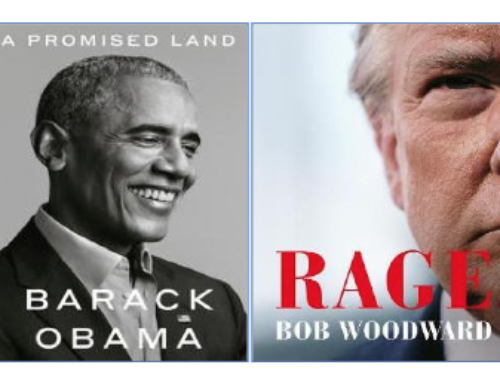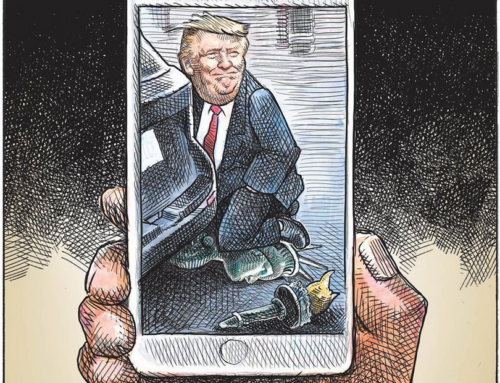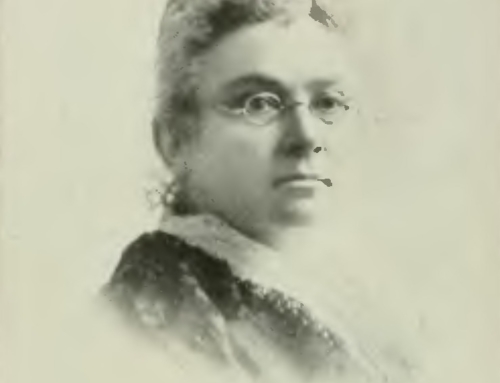A plethora of lessons, a dearth of leadership
Six things you might not know:
- More than 11,000 business books are published annually.[1]
- Surprise, the top-ten books listed below are seldom on anybody’s top-10 or even the top-100 list.
- Will Durant, the great historian (1900-1981), selected his top-ten thinkers from leadership geniuses across history. On Durant’s list, only one author lived as recently as the 19th century and none in the 20th century. Great thinkers, great books and yet no mention by today’s book-review gurus. Odd?
- Durant is best known for The Story of Civilization, an 11 volume series written in collaboration with his wife, Ariel Durant, over a 40 year period. The Durants were awarded the Pulitzer Prize for General Non-Fiction in 1968 and the Presidential Medal of Freedom in 1977.
- One great thinker said Machiavelli’s book, The Prince was “a handbook for gangsters.”
- University of Sussex research found that reading can reduce stress levels by up to 68% and it’s better than listening to music or taking a walk.
(5 minute read)
If you peruse the lists of the top business books of the last few years you will find what appears to be an inexplicable case of myopia, an obvious limited perspective. The lists, whether from Forbes, Inc. or the Globe and Mail, overwhelmingly focus on recent books with little or no reference to any of the great classics that have established the principles of leadership and stood the test of time.
Oh sure, there are a few mentions but the preponderance of lessons we are served up are from twentieth century thinkers. Could this parochial perspective be a root cause of today’s dearth of leadership? Are we emulating too many heuristics of recent thinking and ignoring the great thinking that has spanned history? Are we so caught up in the modern production-consumption merry-go-round of efficiency and technology that we consider the great historical thinkers irrelevant to business leadership? That’s a monumental mistake.
Infrequent inclusions
Some times the classics get mentioned. For example, in the book, The 100 Best Business Books of All Time (2016 edition), there is a “Sidebar” that mentions four classics: Wealth of Nations, The Origin of the Species, The Prince, The Art of War.[2] That’s it. A few words on two pages. The authors devote more space to each of the contemporary books than these four combined. Despite the fact that the foundations of civilization and leadership are embedded in such classics.

Our dead leaders have shared great leadership wisdom, just waiting to be read
Why do we keep reconstructing and emulating the thinking of a bunch of Johnnie-come-lately leaders and academics instead of learning enduring wisdom from our dead friends?
The real history of man is not in prices and wages, not in elections and battles, nor in the even tenor of the common man; it is in the lasting contributions made by geniuses to the sum of human civilization and culture. – Will Durant, The Greatest Minds and Ideas of All Time.
If we aspire to great leadership does it not make sense to read and emulate the wisdom and genius of history? Of course, we should read the works of contemporary people too, but they only offer a narrow perspective.
To explore deeper the origins of leadership, I suggest picking at least one or two of Durant’s top ten that you haven’t yet read.
Durant’s criteria
In making his selections Durant said, “We shall be ruthless and dogmatic here; and though it break our hearts we shall admit no hero to our list whose thought, however subtle or profound, has not had an enduring influence upon mankind. This must be our supreme test.” Civilization has been built on human reasoning, and the hallmark of great leaders is great thinking, great men and women dedicated to a higher purpose, to improving the human condition.
For each of Durant’s chosen geniuses, I have suggested one of their works, each of which is replete with leadership philosophy, principles and lessons.
- Confucius (551-479 BCE): The Analects of Confucius
- Plato (428-348 BCE): The Republic
- Aristotle (384-322) BCE): Nicomachean Ethics
- Saint Thomas Aquinas (1225-1274) – The works for which he is best known are the Summa Theologiae and the Summa contra Gentiles.
- Nicolaus Copernicus (1473-1543): On the Revolutions of the Heavenly Spheres
- Sir Francis Bacon (1561-1626): Essays
- Sir Isaac Newton (1642-1727): The System of the World (1728)
- Voltaire (1694-1778): Letters on the English
- Immanuel Kant (1724-1804): Critique of Pure Reason
- Charles Darwin (1809-1882): On the Origin of Species and The Expression of the Emotions in Man and Animals
Needless to say if you read just a few on his list – or the most salient parts – your understanding and perspective on life, humanity and leadership will be greatly enhanced.
Conspicuous by their absence
Durant acknowledges that “no list could exhaust the treasure of man’s heritage or equal its infinite variety … so let us have many lists.” He’s right. But the importance of sharing his list is to expose the limited nature of today’s “top” book lists and their blinkered perspective. Focusing only on the best of the last year or the last century is arrogant, insular and short-sighted, providing learning and lessons from the thinkers who have been part of creating the “mess” as well as the “success.” If you’d like to see the extent of the current, narrow-minded approach just peruse a few of the lists below:
- The 100 Best Business Books of All Time (only four classics mentioned in passing)
- 20 business books for your office that will make you look smart (all by newcomers)
- Inc.: Top 10 Leadership Books to Read for 2015
- CEO.com: 24 Leadership Books To Read Before You Die
- Forbes: Top Ten Business Books From 2015
- The Globe and Mail: Top 10 leadership and management books of 2015
- Inspiring Leadership Now: Top 20 Must-Read Leadership Books of 2015
Some lists include The Art of War and The Alchemist but none mention Machiavelli’s The Prince, which has been the de facto leadership rationalization for many leaders – too many – for centuries. If you would like an in depth assessment of Machiavelli’s work, I recommend Isaiah Berlin’s essay, The Originality of Machiavelli, which is in his anthology, The Proper Study of Mankind. Also note that Durant does not include The Prince. Perhaps he was of the same mind as Bertrand Russell (1872-1970) who said, it was “a handbook for gangsters.”[3]
 Absent from the lists are books on two recent and great leaders, Nelson Mandela and Mahatma Gandhi. One list did include Doris Kearns Goodwin’s Team of Rivals (“Team of Rivals tells of a day when men were true leaders” – US News & World Report).
Absent from the lists are books on two recent and great leaders, Nelson Mandela and Mahatma Gandhi. One list did include Doris Kearns Goodwin’s Team of Rivals (“Team of Rivals tells of a day when men were true leaders” – US News & World Report). Yu, shall I teach you what knowledge is? When you know a thing, to hold that you know it; and when you do not know a thing, to allow that you do not know it; this is knowledge. – The Analects of Confucius, Chapter XVII
If leaders are to truly lead, they must accept this principle of Confucius and embrace every opportunity to “allow that you do not know,” and escape the confines of conceit, thereby, pursuing greater knowledge. And no better place to do that then immersed in the classics.
It is no accident that we have spawned and emulated several generations of narcissistic leaders who think they know best and who have ignored the brilliant minds of those who built the scaffolding on which they stand.
- Are we so caught up in the scientific and materialistic “progress” of the 20th century that we think the preceding 2,500 years are just a footnote to leadership?
- Do we consider the wisdom in the classics irrelevant? Or boring? Or too difficult to understand?
- Has our modern definition of leadership been shaped and shackled by the economic demands of our insatiable production-consumption system?
Of Riches: I cannot call riches better than the baggage of virtue. The Roman word is better, impedimenta. For as the baggage is to an army, so is riches to virtue. It cannot be spared, nor left behind, but it hindereth the march; yea, and the care of it, sometimes loseth or disturbeth the victory. Of great riches there is no real use, except it be in the distribution; the rest is but conceit. – from Essays by Francis Bacon.
Good bedside companions: Machiavelli, Adam Smith, Mary Wollstonecraft, Charlie Munger, David Brooks
According to a 2009 study by University of Sussex researchers, reading can reduce stress levels by up to 68%.[4]
- Listening to music reduced the levels by 61%
- Having a cup of tea or coffee lowered them by 54%
- Taking a walk by 42%.
- Playing video games brought them down by 21%
I read somewhere that if you read for twenty minutes a day you can read twenty books in a year. So in addition to Durant’s list, I’ve taken the liberty of suggesting another ten books, seven of which were written in the last few decades.
- The Prince – Niccole Machiavelli (not to emulate it but understand it)
- The Theory of Moral Sentiments – Adam Smith
- The Social Conquest of Earth (2012) – Edward O. Wilson (also by Wilson: On Human Nature (1978)
- Human Capability – Elliott Jaques & Kathryn Cason
- Poor Charlie’s Almanack – Charlie T. Munger
- Women & The New Business Leadership – Peninah Thomson
- The Road to Character – David Brooks
- Firms of Endearment – Sisodia, Sheth, Wolfe
- Shakti Leadership – Nilima Bhat and Raj Sisodia
- Vindication of the Rights of Women – Mary Wollstonecraft (1759-1797)
Notes to the list
Adam Smith’s The Theory of Moral Sentiments (1759) is more important and relevant today then the Wealth of Nations. Peninah Thomson’s Women & The New Business Leadership (2011) addresses what is currently being done about the lack of women in boardrooms. Pulitzer Prize-winning biologist Edward O. Wilson argues, convincingly, in The Social Conquest of Earth that our leadership flaws are in our DNA, genetically inherited from our hunter-gatherer ancestors. And Berkshire Hathaway’s Charlie Munger’s Poor Charlie’s Almanack is … priceless.
All leaders have a daunting to-read stack so deciding what to read is essential, especially if we are to break free of our current understanding of what constitutes true leadership. So whatever you read in the next year consider devoting at least half of your quest for knowledge to learning the wisdom and spirit of what Will Durant calls, The Greatest Minds and Ideas of All Time.
Footnotes:
- 100 Best Business Books, p. xi
- 100 Best Business Books, p. 207
- The Originality of Machiavelli, essay by Isaiah Berlin in The Proper Study of Mankind, p. 279, (Farrar, Straus and Giroux).
- Reading can help reduce stress, The Argus.






